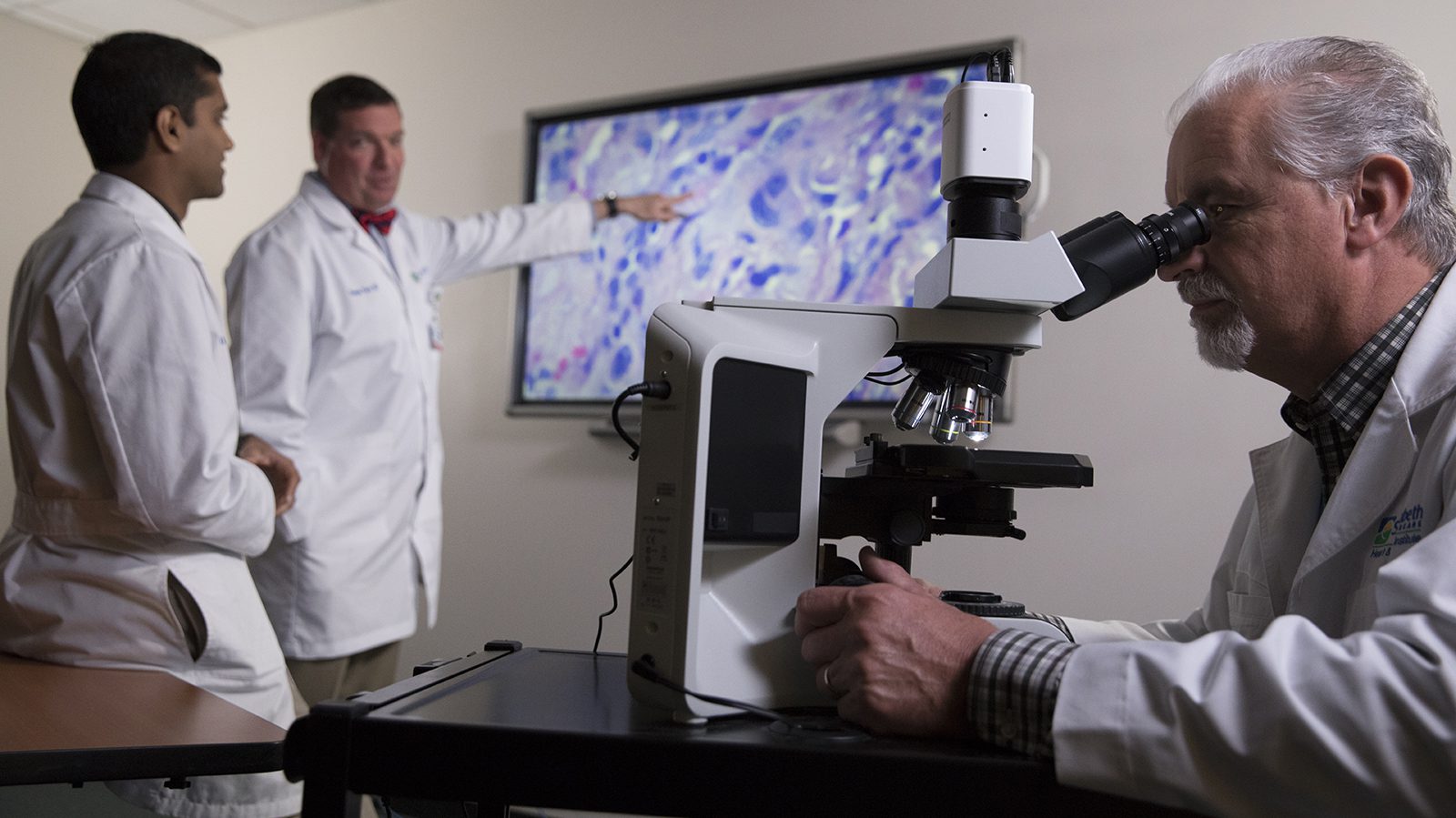Anal Cancer
Anal cancer starts in the lining of the anus or anal canal, below the rectum. The anal canal is the end of your digestive tract. It ends with the anal sphincter muscles that release waste from your body.
Most anal cancers are squamous cell carcinoma, or uncontrolled growth of squamous cells. The cancer cells can move from the lining of the anus into other layers of the anus, including the sphincter muscles.
Risks Factors for Anal Cancer
- Lowered immunity
- Multiple sex partners
- Older age
- Smoking
Causes of Anal Cancer
Anal cancer can be caused by a number of different factors, including:
- Anal Fistula
- Anal sex
- HIV
- HPV infection

Make an appointment
For more information, please contact your oncologist or the Cancer Care Center at (859) 301-4000.
Symptoms of Anal Cancer
Anal cancer often has no symptoms. For some the first sign is bleeding. Other symptoms include:
- A lump near your anus.
- Bleeding.
- Changes in your bowel movements.
- Discharge from your anus.
- Itching around your anus.
- Pain or pressure in your anal area.
- Swollen lymph nodes in your anal or groin area.
Diagnosing Anal Cancer
If your doctor suspects that you have anal cancer, we may run tests to determine the stage of cancer to develop the best treatment plan. These tests may include:
- Anoscopy
- Biopsy
- Blood test
- CT scan
- Ultrasound
- PET/CT scan
- MRI
If you’ve been diagnosed with anal cancer, we can provide a second opinion and present treatment options.
Treating Anal Cancer
At St. Elizabeth Healthcare, we believe in caring for you, not just treating your cancer. Our holistic approach means we combine cancer treatment with working to minimize side effects and help you manage them. Our goal is to make you as comfortable as possible while we use innovative approaches to treat your cancer.
Your treatment may include:
Preventing Anal Cancer
Currently, there is no screening test for anal cancer. To reduce your risk for anal cancer you can take some measures, including:
- Avoid anal sex.
- Don’t smoke.
- Receive an HPV vaccine.
- Treat HIV if you have it.
- Wear a condom during sex.
Your Cancer Care Team
The team includes medical oncologists specializing in immunotherapy and precision medicine, surgical oncologists, radiation oncologists, interventional radiologists, thoracic surgeons, pain management specialists, genetic counselors, pathologists, nutritionists, pharmacists, nurses and support staff. They work together to create a treatment plan that’s just right for you.


